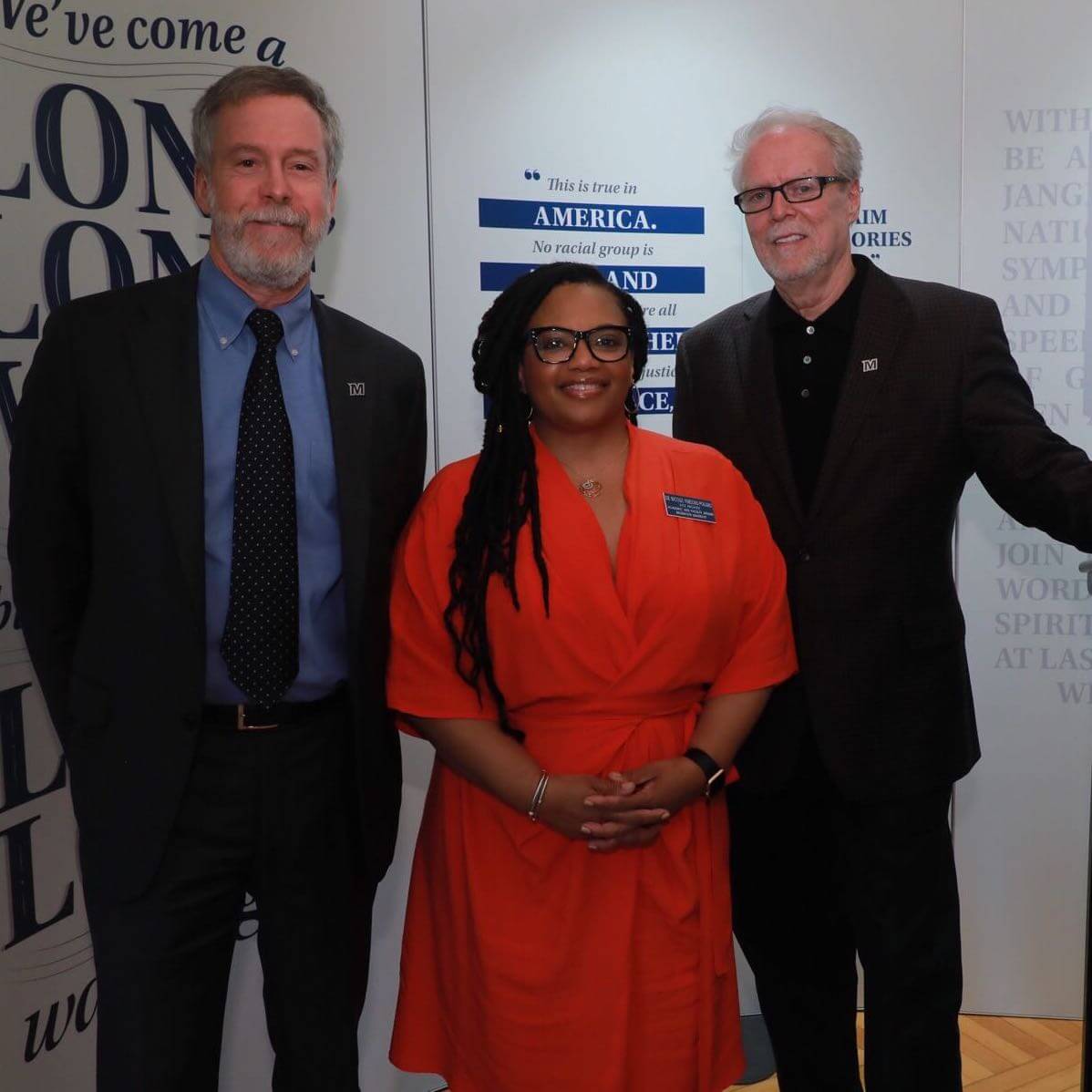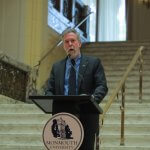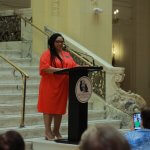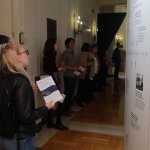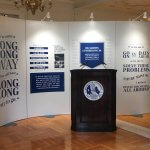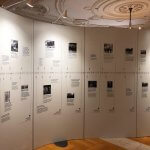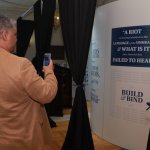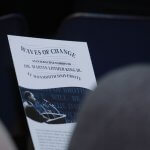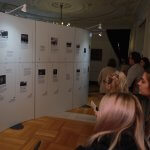WEST LONG BRANCH, N.J. (May 14, 2019) — Monmouth University officials honored the historic 1966 visit of Martin Luther King Jr. with the unveiling of “Waves of Change: An Interactive Exhibit of Dr. Martin Luther King Jr. at Monmouth University” yesterday at a ceremony in Wilson Hall.
An initiative of the President’s Advisory Council on Diversity and Inclusion made possible by the generosity of University alumnus and Monmouth University Trustee Raymond G. Klose ’77, the exhibit was created to memorialize the lectern and microphone that was used by Martin Luther King Jr. on Oct. 6, 1966 when he addressed approximately 2,600 students, faculty, administrators, and community members in what is now Monmouth’s Boylan Gymnasium.
In addition to the podium, the exhibit features a wave-like wall with an audio timeline of King’s speech at the university, complete with accompanying visual callouts of historical references made throughout the speech. Visitors can listen to the speech themselves by scanning a QR code with their cell phones or utilizing available tablet computers.
“Beyond preserving the iconic podium, we explored Dr. King’s speech at Monmouth and wanted to honor the full range of civil rights history that he talked about,” said Monmouth University President Grey Dimenna. “The wave design represents the flow of time and how change and progress often come in waves. It was King’s directive to remember how far we’ve come, but also to acknowledge how far we have to go.”
King, who was 37 at the time he delivered the speech at then Monmouth College, accepted the invitation to deliver the address as part of a student union lecture series.
Nicolle Parsons-Pollard, Ph.D., chair of the Advisory Council on Diversity and Inclusion and vice provost for academic and faculty affairs, said that the fact that a student group invited King to campus, and that he was subsequently introduced by William Van Note, the college president, before speaking should not be understated.
“The youth made a concerted effort to bring Dr. King to campus at a time when his presence was considered controversial, and the administration was bold enough to allow it,” said Parsons-Pollard. “This exhibit not only honors the history and legacy of King’s speech, but also the spirit of academia—intellectual freedom and the ability to challenge each other’s beliefs and opinions about the most pressing issues facing society.”
The “Waves of Change” exhibit will be a permanent installation on the main floor of the centrally located Wilson Hall on Monmouth University’s campus and is open to the public for viewing during regular business hours.
A recording of yesterday’s ceremony is available online.

